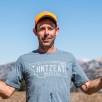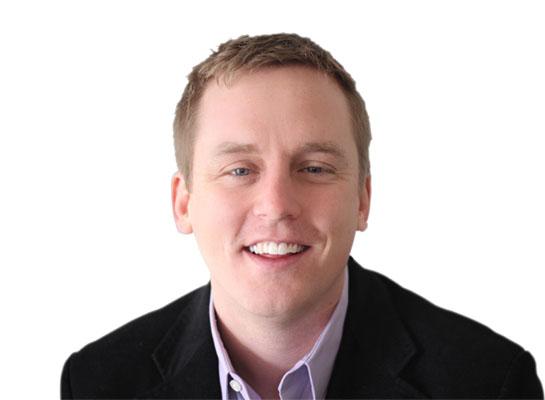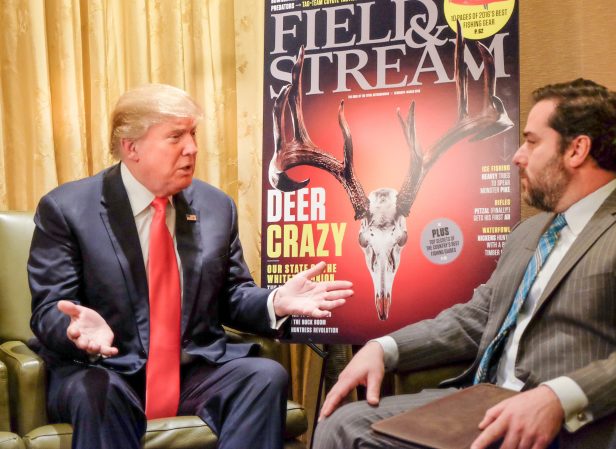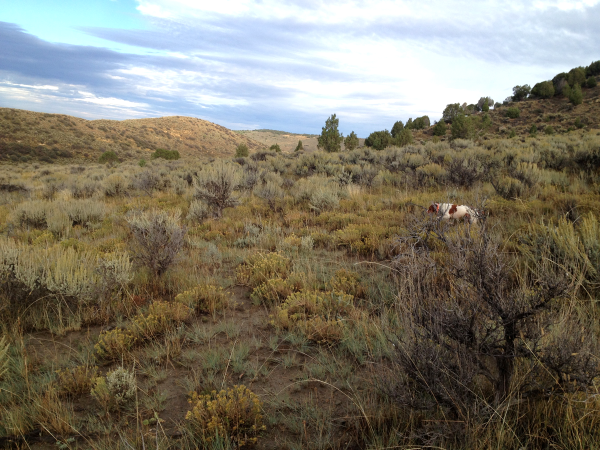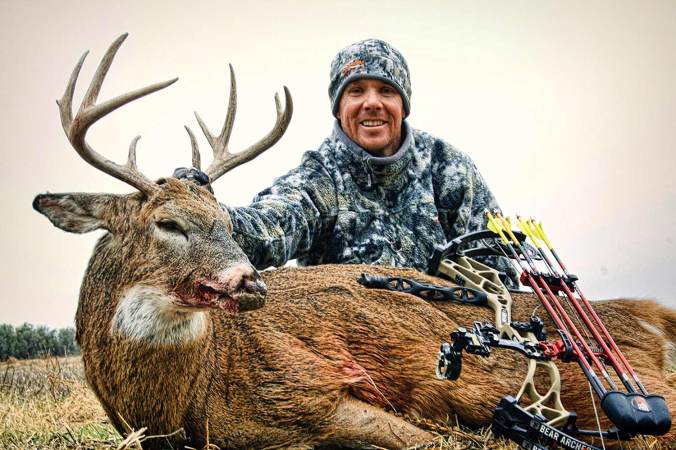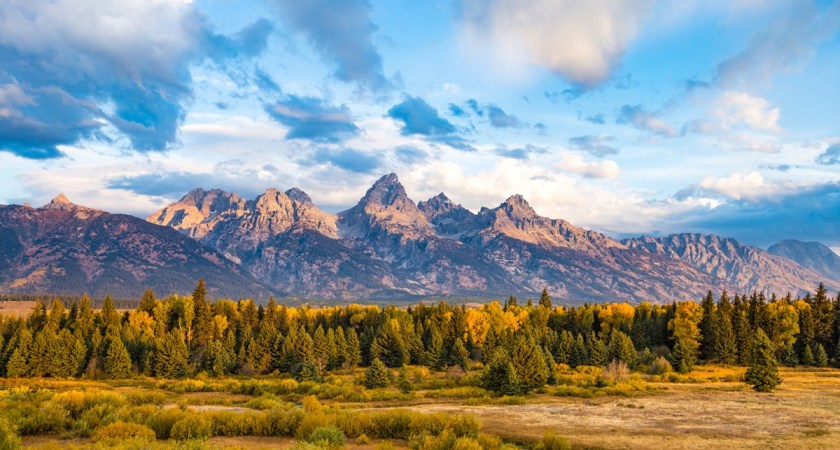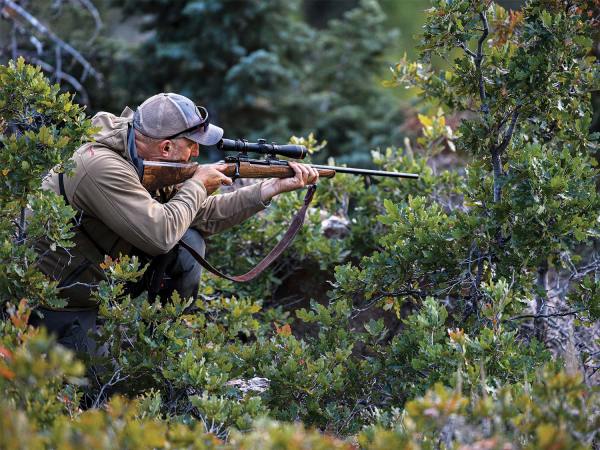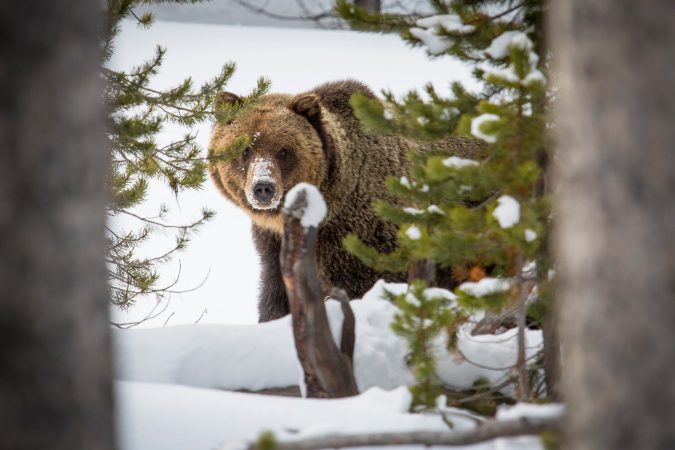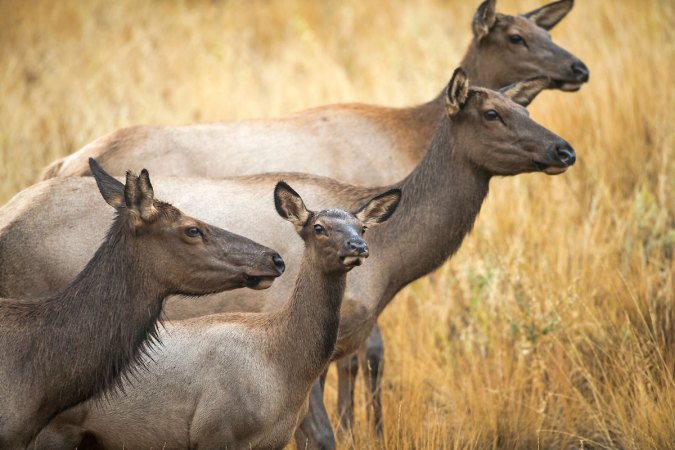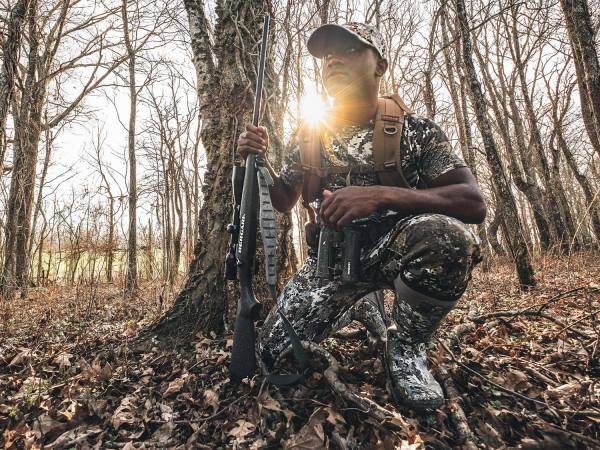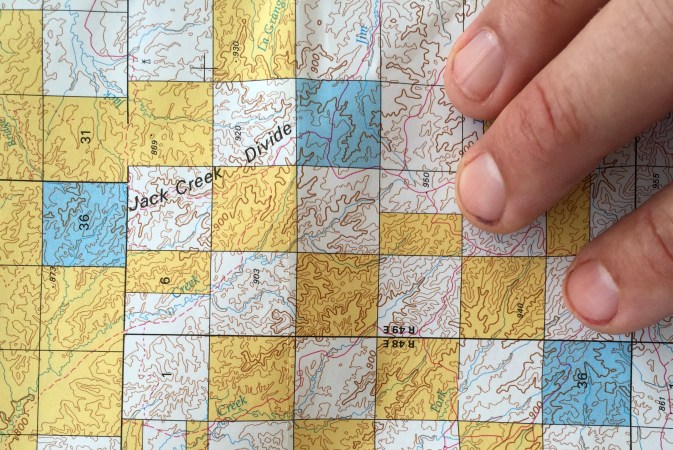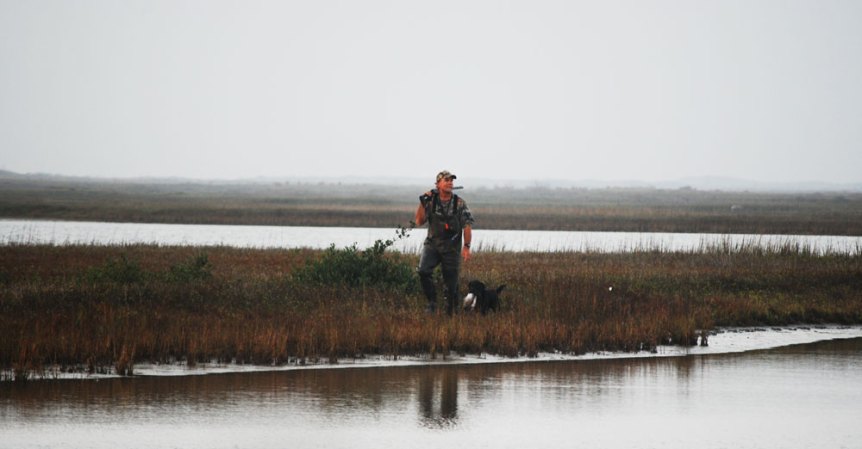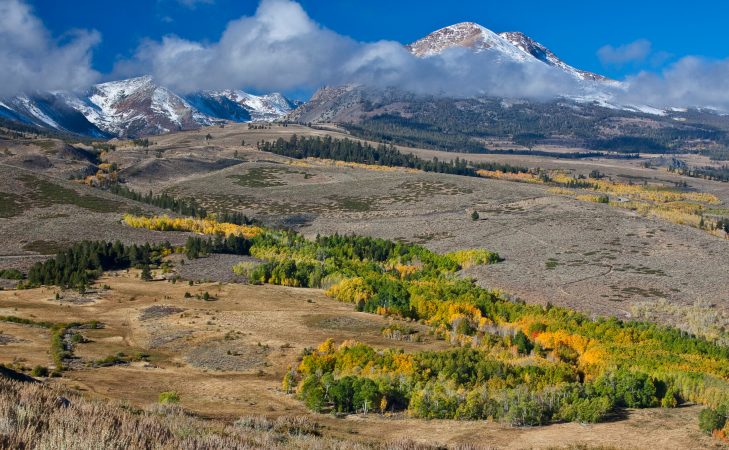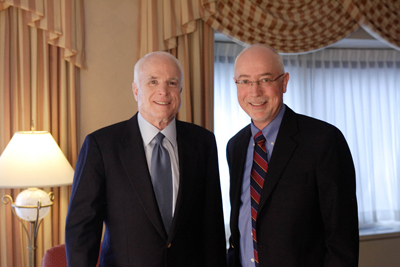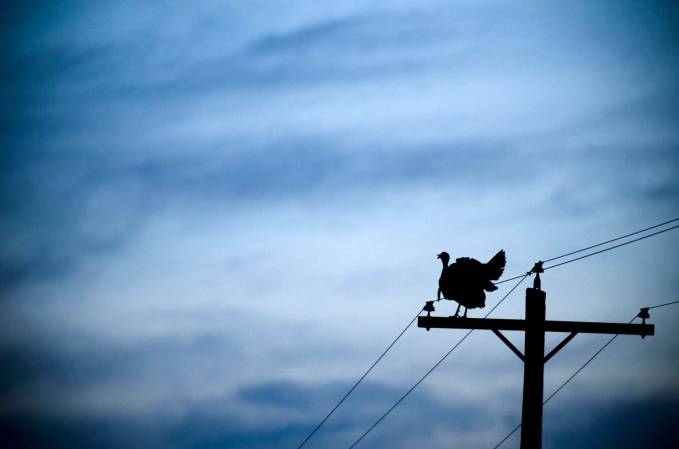Eric Dinger is like most of us: he wishes he had more places to hunt and fish.
But unlike most of us, who complain about access the same way we grumble about the weather, Dinger is working to find himself—and you—a spot to cast a line or swing a shotgun. Dinger is the CEO of Powderhook, a new online access brokerage based in Lincoln, Neb., that just may change the entire conversation about recreational access in America.
Powderhook is essentially a social search engine, but unlike Facebook or Instagram, which trade in non-consumables like photographs or gossip, Dinger’s site aims to connect those of us who have access with those of us who do not. It’s a marketplace, like Airbnb.com or Expedia.com, but for places to hunt or fish.
As of this week, Powderhook features 240,000 different hunting and fishing access opportunities on both private and public land and maps covering more than 535 million acres across the country. The site is growing almost exponentially, and is starting to get noticed by land managers, conservation groups, and access-hungry sportsmen. I sat down with Dinger to learn more about the site and how it could—maybe—stop our chronic complaining about access.
AM: What’s the elevator pitch for Powderhook, and why should sportsmen and women connect online?
ED: As a young man growing up in Redfield, South Dakota, I had access to some of the best pheasant hunting in the world. After moving to Minnesota for high school and Nebraska for college I was left with almost no private ground on which I could hunt. The places I can go are often difficult or awkward to arrange, tough to bring a friend, and even hard to take my own kids. I believe that’s the case for many of your readers, especially those living in more urban areas. Powderhook exists to make finding and giving others a place to go easier and more fun.
AM: But isn’t this already being done? I keep hearing about how dozens of organizations are working to solve access problems.
ED: Individual sportsmen and women are essential to the process of creating access. No one—not a non-profit, government organization or politician–can do what millions of motivated sportsmen and women can do individually about hunting and fishing access.
AM: What are the mechanics of using the site? Is it free? Can you give us an overview of how to join and use the site?
ED: It’s free. You simply log in after creating a user name and password, and then you can either search for specific opportunities—say, turkey hunting in Ohio—or you can post your own access. You can also search our maps and database of public land across the country.
AM: Can you give me an example of how access is obtained on Powderhook?
ED: Keith Stewart and his wife, Kathy, planned a trip to a cabin on the White River in Arkansas. They found the cabin on Airbnb.com. The White River, as many of your readers may know, is a wonderful trout fishery. Before going on the trip, Keith came to Powderhook and found there are many public access points along the river. But, not knowing the water well, Keith wanted to hire a guide. Powderhook gave him both options. If he wanted a DIY adventure, he could choose a point near his cabin and go. Since there was a guide nearby, he was able to use Powderhook to get everything setup quickly and easily. Both Keith and the guide, Larry with Hogs on the Fly, got what they needed. Keith got local expertise. Larry got a customer.
AM: In my experience, access is a reward that’s bestowed on those who work hardest to achieve it. If you really want to find a place to hunt and fish, you can do it by knocking on a lot of doors and spending time learning the land and landowners. Is Powderhook a shortcut that will undermine that sort of sweat equity in access?
ED: This is a great question. You’re right; in many areas a person willing to make the effort can find a place to go. We think that’s how it should work. Take the time to build up trust, take good care of the places you go and the people you meet, and you’ll have earned the access you’re after.
As many of your readers know, there are major portions of the country where this process just doesn’t work any more. On top of that, people seem to be busier than ever. I’m one of them. I love to hunt and fish as much as anyone I know, but between work, a growing family, and all the commitments that come with both, I have little time to get out at all, much less scout and meet landowners. People relocate more than ever. Our population is urbanizing and landowners are weary of the knockers, all trends that hurt interest in our pastime.
Our work at Powderhook is about making it easier and more fun to find and provide access. The technology we create will speed up the process of building trust, will make it easier to take care of details like liability, and will give us the tools we need as individuals to share our access with our friends. Lowering the barrier cannot mean lowering the perceived value. We’re with you on that.
AM: Is Powderhook a tool for finding free access? Paid access? What is the most popular type of access that users are seeking?
ED: Powderhook is free for anyone to use. We have hundreds of public spots in every state, so not having any place to go can no longer be an excuse for not going. Last year hunters and anglers took about 700 million trips in the United States. Of those trips, 60 percent occurred on private land and 40 percent occurred on only public or a blend of public and private. For many reasons, private land remains the preference of many sportsmen. To that end, Powderhook is free for sportsmen, outfitters, guides, lodges, landowners, hunting clubs, and charters. We make money when an individual pays for something, whether that’s for a trip, a lease, a charter, or anything else they find on our site.
AM: I hear all the time that liability exposure is a primary reason that landowners refuse to grant hunting and fishing access. Is that true, and how does Powderhook address that barrier?
ED: You are correct. In our research, liability was the number one reason people were denied access to private ground. Managing liability is essential to the process of creating more access and we’re hard at work on our solution to that problem.
AM: As you know, one of the bedrock beliefs of Open Country is that lack of access is the biggest barrier to fuller participation in our hunting, fishing, and shooting sports. What’s Powderhook’s take on that, and how can it help reduce that barrier?
ED: Every expert I talk to agrees. Our whole team believes it to be true. The research backs it up. Lack of access, and perceived lack of access to quality spots undermines the desire of the average person to hunt and fish. And, it hurts the frequency with which the most avid among us are able to get out.
Powderhook believes technology is essential to fighting this problem. Individual sportsmen and women need the tools to do the work of saving the hunting and fishing heritage they love. NWTF, DU, RMEF, PF, and other non-government organizations lead the way and do all they can. It’s time for a movement of empowered individuals to step up and help.
Liability, locating a spot, licensing, regulations, mentoring, motivating… As an industry we must lower the barrier of entry to getting started and staying involved. You and I grew up with places to go. I’ve lived in Nebraska for 15 years and I still have better access in South Dakota. Try this sometime: Ask someone in your life who doesn’t hunt to try and figure out how to find a license, the equipment, place to go, and learn the rules on their own. It’ll take them hours, or even days. Just the licensing part may take them many hours. Fishing is a little easier, but we’ve got to make all of these processes simpler if we want the next generation to love the outdoors the way we do.
AM: You have big plans for Powderhook, as a national resource for connecting sportsmen with access. But I can see it working even more effectively at county and regional levels. What’s your sense of the appropriate scale?
ED: At Powderhook we want to make it as easy for a college kid in Indiana as it is for a retired doctor in Idaho to have a place to go. Access isn’t a single big problem; it’s millions of small problems. That’s why it’s been so tough. The only way to solve problems of this magnitude is to give people the tools to take care of themselves. That works out because the sportsmen and women I know look at taking care of themselves and their neighbors as a way of life.
